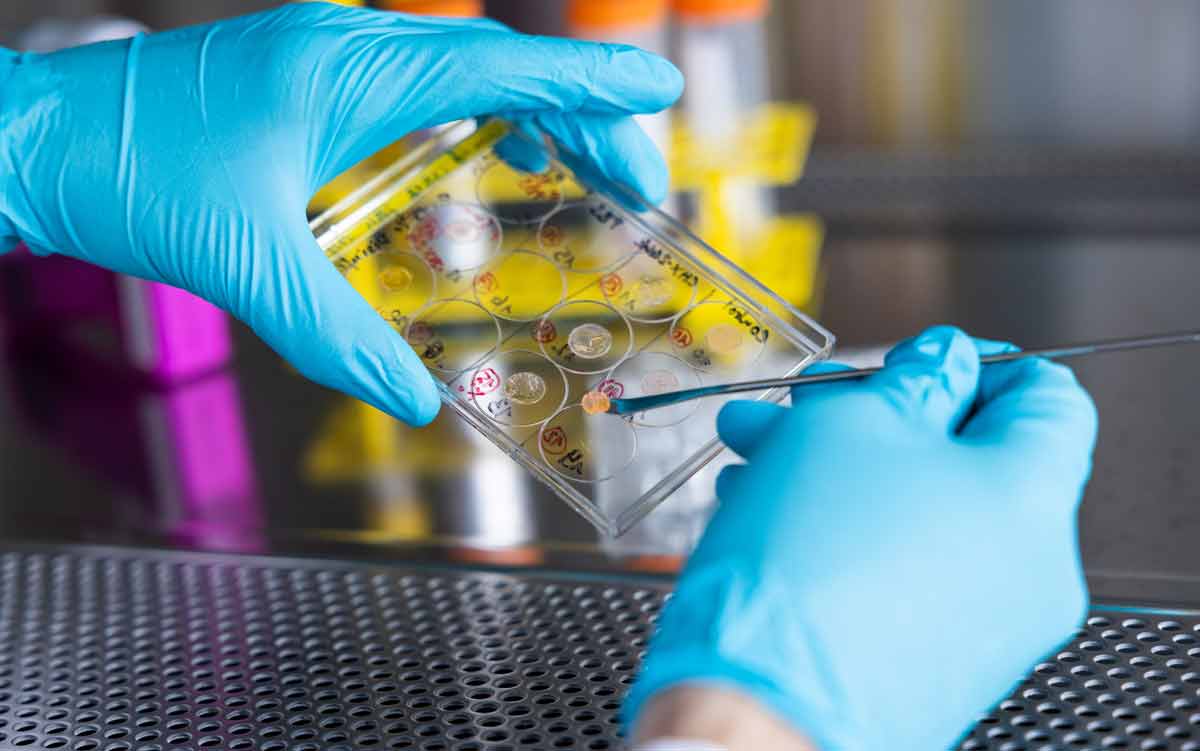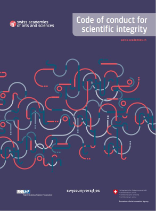Innosuisse promotes science-based innovation. While doing so, the scientific work carried out within the framework of Innosuisse funding or on which it is based must comply with the rules of scientific integrity and good scientific practice.

Innosuisse does not promote any projects and activities that violate scientific integrity or good scientific practice. Anyone applying for funding or receiving funding from Innosuisse must comply with the rules of scientific integrity and good scientific practice.
Researchers must adhere to these rules
The Code of conduct for scientific integrity describes the basic principles to be observed when carrying out scientific work: Download Code publication.
In addition, further requirements for good scientific practice may apply depending on the discipline. The best thing to do would be to ask your research institution about this directly.
What does Innosuisse consider to be “scientific misconduct”?
Scientific misconduct can occur in many forms and in virtually all activities funded by Innosuisse. Innosuisse is guided in particular by the information on what constitutes scientific misconduct listed in sections 5.2.2 to 5.2.11 of the Code of conduct for scientific integrity, the list of which is not exhaustive:
- Fabrication
- Falsification
- Plagiarism
- Misconduct regarding authorship
- Incorrect publication lists
- Improper handling of data and research materials
- Misconduct in collaborative projects
- Misconduct in expert reports and peer reviews
- Misconduct in research misconduct proceedings
- Other forms of scientific misconduct
It must be considered on a case-by-case, discipline-specific basis whether a particular course of conduct constitutes scientific misconduct.
Investigation procedure and consequences in the event of violations
Innosuisse investigates alleged violations of scientific integrity. Those persons accused involved in the proceedings are entitled to all procedural rights under administrative procedural law (Federal Act on Administrative Procedure, APA, SR 172.021).
Scientific misconduct in connection with an application or funding by Innosuisse will be sanctioned accordingly by the agency (e.g. rejection of the application, reduction of funding contributions, termination of ongoing funding, exclusion from further applications).
If an application involves persons who have been sanctioned as a result of serious scientific misconduct within the past three years, Innosuisse will not consider the application.
Point of contact for consultation and reporting
For general questions regarding scientific integrity, please contact the Innosuisse staff responsible for your application or funding.
For more specific information, we recommend that you contact your research institution’s integrity office directly. Integrity offices also offer arbitration services for disputes involving scientific misconduct.
If you have any comments about scientific misconduct in the context of Innosuisse funding or applications, these can be directed to the contact person indicated on the right. Your information will be treated as confidential.
Last modification 12.07.2024






